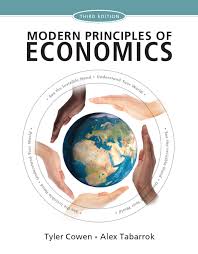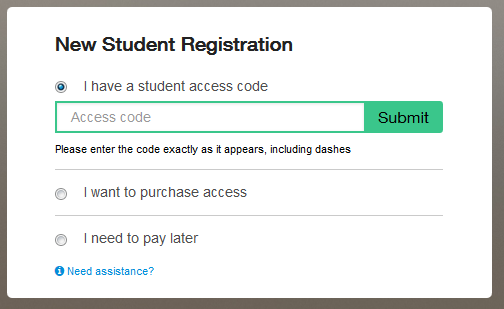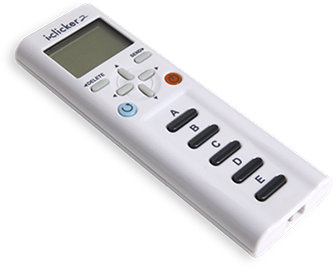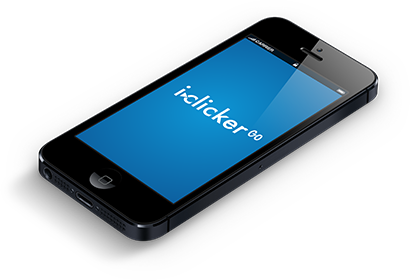Syllabus
About the Course |
This course is intended as an overview of economics. Think of it as a informed-citizen’s guide to the economy and to economic ideas. Economics is at its core a theoretical discipline, and one goal of the course is to give you a working knowledge of the basic theory and the beginnings of an economic intuition. We will move fast and cover a lot of ground, from the environment to personal finances, from the economics of organ transplants to the workings of the Federal Reserve. But you will see that many of the same basic ideas will be applicable to all these areas.
One important theme for the course is that understanding economics makes you see the world differently — and that many of people’s intuitions about how the social world works are flat-out wrong. In many respects, this course is about deflating urban legends about the economy and society generally. Economists are happiest when they are mythbusters.
After you’ve spent some time in the course, however, you may decide you really like Economics and want to take more of it — maybe even to major or minor in Economics. Now what? Economics 1000 does not by itself fulfill the prerequisites for upper-division courses in Economics. Students who start out wanting to major or minor in Econ (or related areas like Business) often take Economics 1201 (microeconomics) and 1202 (macroeconomics), which are the necessary prerequisites. But never fear. There is an alternative path into Economics. If you take Econ 1000 and find you like it, you can take Econ 1200, which is a four-credit course that covers much the same material as 1000 (both macro and micro) but in greater depth and breadth. Econ 1200 is basically a compressed version of Econ 1201 and 1202. Taking the sequence 1000-1200 is just as good as taking the sequence 1201-1202.
For more information about Economics as major (or minor), click here.
Course Format and Requirements |
In a typical large-lecture course, class time is devoted mostly to lectures, usually with PowerPoint slides. We will sometimes deliberately try to push some of the lecturing online so that we can devote more class time to other, more interesting things, like discussion, practice problems, videos.
Here’s how it will work. The course material is divided into 13 “modules,” which you will find under the Learning Modules link at the left in the HuskyCT menu. Each module will contain all the material you need for one topic. (Modules will sometimes contain two related chapters from the textbook.)
- References to the relevant chapters in the textbook.
- Online homework.
- Online video lectures.
- Other (not required) readings, often fun articles from newspapers or magazines; videos and links of interest; and maybe PowerPoint slides or other materials.
In effect, the modules provide a completely online version of the course, which you can work on at your own pace — as long as you meet the deadlines. That will free us up in class to have discussions, work on problems, or talk about ideas not covered in the textbook. Don’t think of the class meetings as “lectures.” Think of them as “workshops.”
One aspect of the online part of the course will be homework and quizzes, which are tightly linked to the textbook. (See textbook and signup information below.) There will be two parts to the online assignments.
- Learning Curve: This is an adaptive learning system that allows you to practice problems at your own pace. It chooses problems adaptively based on which topics you are finding most difficult. You continue to do problems until you reach a pre-set target score. You will be graded strictly on whether you complete each assignment (reach the target score), not on how many problems you get wrong or right. Learning Curve will count five per cent of your grade, but its value goes well beyond that, because it is a great way to practice for the quizzes and the exams.
- Graded Homework in Sapling Learning . We will cover 19 chapters in the textbook, and there will be a graded homework on each chapter. Obviously some modules will have two — closely related — chapters in them. The homeworks will be due every Wednesday just before class, except for the two Wednesdays — October 3 and November 7 — when we have our two midterms. You get two shots at each homework quiz; they are untimed; and you can save a quiz you have started and go back later. This means in effect that the quizzes are open book. The main function of the quizzes is to keep you up with the material so you will benefit from the in-class activities and be perepared for the exams. I will drop the lowest three quiz grades, which means that you have three “free passes.” The free passes are intended to take into account any problems, including computer problems, you might have: so don’t ask to retake quizzes you miss. The howemork quizzes count 10 per cent of your grade, but, again, their value goes beyond that in helping you prepare for the exams.
Most of your grade will come from two midterms and a final.
Two midterm exams (25 per cent each). These will be in-class exams, October 2 and November 6, consisting of 50 multiple-choice questions each. The midterms will be cumulative only in the sense that later material will build on ideas presented earlier in the course. No makeups.
Final exam (30 per cent). The University will announce the final exam schedule late in the semester, and I will then post the time and date here. The final will be cumulative, but will emphasize the material covered after the second midterm. It will consist of 100 multiple-choice questions. The first 50 or so will revisit material from the first two midterms; the second 50 will cover material new since the second midterm.
We will spend time in class preparing for these exams, and I have provided a link to practice exams in the HuskyCT menu at left. The teaching assistant for the course (see below) is also available for free one-on-one tutoring.
The exams will be curved. For each of the two midterms, I will provide you with rough translation of your number grade into a letter grade so you can get an idea where you stand. These provisional letter grades are not guarantees, however, and your final grade will come from the curve of all components – midterms, final, quizzes, and participation.
The final five percent of your grade will come from class participation. This will involve the use of clickers: if you use a clicker on a day we use clickers, you get 1 of 1 possible participation points. But I will add three participation points to everyone’s account – in effect giving you three “freebies” to take into account any possible glitches. You can’t get more that 100 per cent for participation. Note that you will not be graded on whether the answer you give with a clicker is correct – only on whether you participated.
So this course has lots of alternative pieces that you can use to tailor your experience to your own learning style and interests. If you have any questions, ask me.
Course Grading Summary:
Learning Curve 5%
Homework 10%
Participation 5%
Midterm 1 25%
Midterm 2 25%
Final Exam 30%
|
Grade |
Letter Grade |
GPA |
|
93-100 |
A |
4.0 |
|
90-92 |
A- |
3.7 |
|
87-89 |
B+ |
3.3 |
|
83-86 |
B |
3.0 |
|
80-82 |
B- |
2.7 |
|
77-79 |
C+ |
2.3 |
|
73-76 |
C |
2.0 |
|
70-72 |
C- |
1.7 |
|
67-69 |
D+ |
1.3 |
|
63-66 |
D |
1.0 |
|
60-62 |
D- |
0.7 |
|
<60 |
F |
0.0 |
Textbook and LaunchPad |
The textbook for the course will be Modern Principles of Economics, by Tyler Cowan and Alex Tabarrok (Worth Publishers, fourth edition, 2018). The book is associated with the Sapling Learning platform, which includes the etext version of the book along with the LearningCurve adaptive learning program and the online homeworks. To access the textbook, LearningCurve, and the online homework, you must first click on the Sapling Registration link in the left menu of HuskyCT. Follow these instructions. DO NOT create an account on the publisher’s website without going through HuskyCT. Only through HuskyCT can you link to the correct course in Sapling.
Buying access:.
- You can buy access to the eBook and Sapling homework directly from the publisher. Use the I want to purchase access radio button. Note that the price from the publisher may be different (less) than from the bookstore.
- You can buy a card at the UConn Bookstore that gives you an access code for the eBook and Sapling homework. Enter your access code in the New Student Registration box.
- If you want a hard copy (loose-leaf) of the book, you can buy one at the UConn Bookstore; it will come bundled with an access code. Enter your access code in the New Student Registration box. Even if you buy the hard copy, you still get access to the e-text. Note, however, that with the all-electronic alternatives, you are purchasing only semester-long access to the book.. The hard copy is forever.
- Start with 21 days of free trial access. Use the I need to pay later radio button. Note: with free trial access, there is no excuse not to get started on the homework and LearningCurve right away.
If you have any trouble, contact technical support.
Clickers |
We will use the i>clicker response system for in-class polling, including practice exam questions. Five percent of your grade will be class participation, which will be measured as the percentage of clicker-days on which you entered at least one response. (By clicker-days I mean days on which we use the clcikers, which will be many but not all.) I think you will enjoy the in-class polling. You have two choices:
You can buy a physical i>clicker at the bookstore. You buy a clicker once and can use it for all classes that require it throughout your UConn career. The bookstore will buy back an i>clicker in good condition for about $20. You can also buy one from another student or even share a clicker with a friend — so long as that friend is not also taking this class.
You can use REEF Polling, which is software that allows you to use your laptop, tablet, or phone as a clicker. 6-month $14.99
1-year $23.99
2-year $32.99
4 year $47.99Available in a browser or as an iOS or Android app.
To register your i>clicker, use the i>clicker Registration link in the HuskyCT menu at left. You must register in order to get credit for participation. NOTE: because UConn has moved to a new version of iClicker software, you must re-register your clicker even if you already registered it in a previous semester.
Note: if I catch anyone entering responses for someone else not in attendance, I will consider it a breach of academic integrity, and both will get a zero for class participation.
Help and Resources |
My office hours are Mondays 12:30 to 2:00 and Wednesdays 2:00 to 4:00 or by appointment. I am also around other times, and I can usually talk for a while after class. Come talk to me if you have any problems or questions about the class. Also feel free to come talk to me about other things, including economics or academics generally. Room 304 Oak Hall
The teaching assistant for this course is Yangkeun Yun. He should be your first stop when you have questions about the material or want some one-on-one tutoring. His office hours are Tuesdays from 9:30 a.m. to 12:00 p.m. and Fridays from 9:00 a.m. to 12:30 p.m. Room 336A Oak Hall
The Economics Department offers free one-on-one tutoring for all student in principles of economics classes. If you are struggling with any of the material in the course, there is no excuse not to meet with a tutor to go over concepts. When meeting with a tutor, it is always best to come prepared with questions (from the chapters or exams).
For support for HuskyCT: The ITS Help Center is available to assist students with HuskyCT issues during normal hours of operation in the Homer Babbidge Library, Level 1.
(860) 486-4357
The Center for Students with Disabilities (CSD) at UConn provides accommodations and services for qualified students with disabilities. If you have a documented disability for which you wish to request academic accommodations and have not contacted the CSD, please do so as soon as possible. The CSD is located in Wilbur Cross, Room 204 and can be reached at (860) 486-2020 or at csd@uconn.edu. Detailed information regarding the accommodations process is also available on their website at www.csd.uconn.edu.
Student Responsibilities and Resources |
As a member of the University of Connecticut student community, you are held to certain standards and academic policies. In addition, there are numerous resources available to help you succeed in your academic work. This section provides a brief overview to important standards, policies and resources.
Student Code
You are responsible for acting in accordance with the University of Connecticut’s Student Code Review and become familiar with these expectations. In particular, make sure you have read the section that applies to you on Academic Integrity:
- Academic Integrity in Undergraduate Education and Research
- Academic Integrity in Graduate Education and Research
Cheating and plagiarism are taken very seriously at the University of Connecticut. As a student, it is your responsibility to avoid plagiarism. If you need more information about the subject of plagiarism, use the following resources:
- University of Connecticut Libraries’ Student Instruction (includes research, citing and writing resources)
Copyright
Copyrighted materials within the course are only for the use of students enrolled in the course for purposes associated with this course and may not be retained or further disseminated.
Netiquette and Communication
At all times, course communication with fellow students and the instructor are to be professional and courteous. It is expected that you proofread all your written communication, including discussion posts, assignment submissions, and mail messages. If you are new to online learning or need a netiquette refresher, please look at this guide titled, The Core Rules of Netiquette.
Adding or Dropping a Course
You must officially drop a course to avoid receiving an “F” on your permanent transcript. Simply discontinuing class or informing the instructor you want to drop does not constitute an official drop of the course. For more information, refer to the Undergraduate Catalog. Matriculated students should add or drop a course through the Student Administration System.
Academic Calendar
The University’s Academic Calendar contains important semester dates.
Academic Support Resources
Technology and Academic Help provides a guide to technical and academic assistance.
Policy against Discrimination, Harassment and Inappropriate Romantic Relationships
The University is committed to maintaining an environment free of discrimination or discriminatory harassment directed toward any person or group within its community – students, employees, or visitors. Academic and professional excellence can flourish only when each member of our community is assured an atmosphere of mutual respect. All members of the University community are responsible for the maintenance of an academic and work environment in which people are free to learn and work without fear of discrimination or discriminatory harassment. In addition, inappropriate Romantic relationships can undermine the University’s mission when those in positions of authority abuse or appear to abuse their authority. To that end, and in accordance with federal and state law, the University prohibits discrimination and discriminatory harassment, as well as inappropriate Romantic relationships, and such behavior will be met with appropriate disciplinary action, up to and including dismissal from the University. Refer to the Policy against Discrimination, Harassment and Inappropriate Romantic Relationships for more information.
Policy Against Discrimination, Harassment and Related Interpersonal Violence
The University is committed to maintaining an environment free of discrimination or discriminatory harassment directed toward any person or group within its community – students, employees, or visitors. Academic and professional excellence can flourish only when each member of our community is assured an atmosphere of mutual respect. All members of the University community are responsible for the maintenance of an academic and work environment in which people are free to learn and work without fear of discrimination or discriminatory harassment. In addition, inappropriate amorous relationships can undermine the University’s mission when those in positions of authority abuse or appear to abuse their authority. To that end, and in accordance with federal and state law, the University prohibits discrimination and discriminatory harassment, as well as inappropriate amorous relationships, and such behavior will be met with appropriate disciplinary action, up to and including dismissal from the University. Additionally, to protect the campus community, all non-confidential University employees (including faculty) are required to report sexual assaults, intimate partner violence, and/or stalking involving a student that they witness or are told about to the Office of Institutional Equity. The University takes all reports with the utmost seriousness. Please be aware that while the information you provide will remain private, it will not be confidential and will be shared with University officials who can help.
Statement on Absences from Class Due to Religious Observances and Extra-Curricular Activities
Faculty and instructors are strongly encouraged to make reasonable accommodations in response to student requests to complete work missed by absence resulting from religious observances or participation in extra-curricular activities that enrich their experience, support their scholarly development, and benefit the university community. Examples include participation in scholarly presentations, performing arts, and intercollegiate sports, when the participation is at the request of, or coordinated by, a University official. Such accommodations should be made in ways that do not dilute or preclude the requirements or learning outcomes for the course. Students anticipating such a conflict should inform their instructor in writing within the first three weeks of the semester, and prior to the anticipated absence, and should take the initiative to work out with the instructor a schedule for making up missed work. For conflicts with final examinations, students should contact the Office of the Dean of Students.











